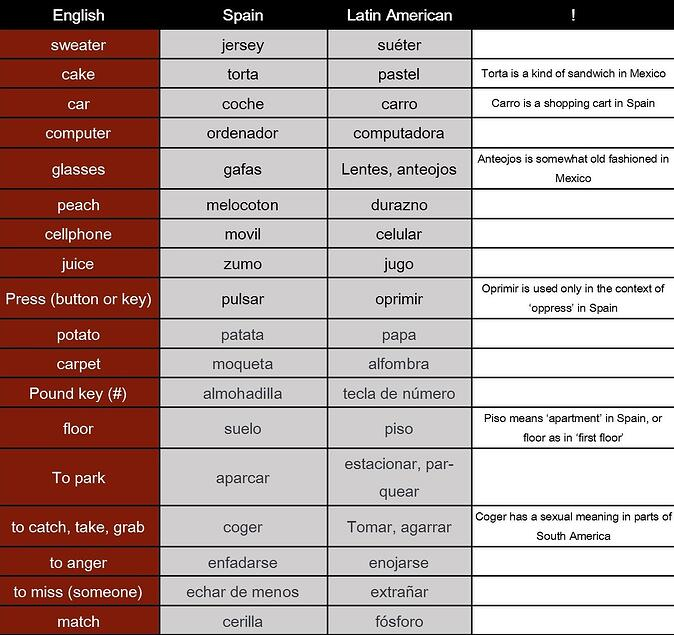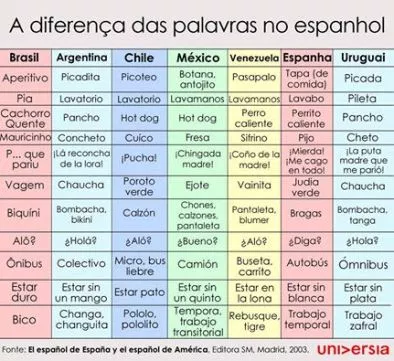Language barrier is a global issue concerning all companies and corporations which want to develop and go international. Tricky words, unusual translations and numerous idioms will cause a lot of trouble not only for translators but also for SEO professionals. All due to the fact that SEO has its own rules which need to be followed and its own key phrases which differ in various countries. And unfortunately they don’t necessarily have to meet our expectations.
Additionally, when doing SEO for your website, you need to remember about the developing machine learning technology, artificial intelligence and numerous changes introduced by search engines. These elements create a really impressive combination which hinders the process of translating numerous keywords. But why proper translation of key phrases is so difficult and is it the fault of the SEO specialists or the translation systems they use?
 Above you can see a comparison of the popularity of the movie theater phrase in the UK (left) and in the US (right) done with the use of the Semrush tool.[/caption]
Above you can see a comparison of the popularity of the movie theater phrase in the UK (left) and in the US (right) done with the use of the Semrush tool.[/caption]
 All kinds of linguistic variations that also aren’t taken into account by translation machines are another challenge. Most often such changes result from local dialects and we can observe them in American English where some words lack the u letter present in British English (as in humour in British English and humor in American English).
Actually, when it comes to English, the situation is even more complicated, there are dozens of various dialects such as Australian, African or Canadian English. As you can probably guess, due to such diversity most machines aren’t capable of translating texts correctly and as a result using such translations drastically reduce the chances that the SEO process will be successful.
The same applies to Spanish. Spanish spoken in Spain differs from the one spoken in South America. Ignorance of these dissimilarities can result in a serious mistake.
[caption id="attachment_16484" align="aligncenter" width="674"]
All kinds of linguistic variations that also aren’t taken into account by translation machines are another challenge. Most often such changes result from local dialects and we can observe them in American English where some words lack the u letter present in British English (as in humour in British English and humor in American English).
Actually, when it comes to English, the situation is even more complicated, there are dozens of various dialects such as Australian, African or Canadian English. As you can probably guess, due to such diversity most machines aren’t capable of translating texts correctly and as a result using such translations drastically reduce the chances that the SEO process will be successful.
The same applies to Spanish. Spanish spoken in Spain differs from the one spoken in South America. Ignorance of these dissimilarities can result in a serious mistake.
[caption id="attachment_16484" align="aligncenter" width="674"] Exemplary vocabulary differences in Spain and South America. Source: http://blog.dynamiclanguage.com/spanish-variations-between-spain-latin-america[/caption]
The most drastic example is the word coger which means to catch in Spain whereas in many countries of South America it’s a polite term to express sexual intercourse. In this case, coger el autobús (catch a bus) should be translated as tomar el autobús. Additionally, the word el autobús isn’t used in most South American countries. In Argentina you’d say el colectivo, in Chile - el micro, in Mexico - el camión, in Venezuela - la Buseta, in Uruguay - el ómnibus and in the Caribbean - la guagua.
[caption id="attachment_16486" align="aligncenter" width="394"]
Exemplary vocabulary differences in Spain and South America. Source: http://blog.dynamiclanguage.com/spanish-variations-between-spain-latin-america[/caption]
The most drastic example is the word coger which means to catch in Spain whereas in many countries of South America it’s a polite term to express sexual intercourse. In this case, coger el autobús (catch a bus) should be translated as tomar el autobús. Additionally, the word el autobús isn’t used in most South American countries. In Argentina you’d say el colectivo, in Chile - el micro, in Mexico - el camión, in Venezuela - la Buseta, in Uruguay - el ómnibus and in the Caribbean - la guagua.
[caption id="attachment_16486" align="aligncenter" width="394"] Source: https://tododeele.wordpress.com/2015/06/04/la-diferencia-de-algunas-palabras-en-espanol/[/caption]
Source: https://tododeele.wordpress.com/2015/06/04/la-diferencia-de-algunas-palabras-en-espanol/[/caption]
Keywords - what are they actually?
To find out why translating keywords is so problematic for SEO professionals, we need to start by defining them. It’s not a piece of cake because the ideas of people searching for given objects or services are the lion’s share of every phrase entered into the search engine. And as you can probably suppose, SEO specialists can’t always guess what users have in their minds. It’s particularly relevant when they have to deal with foreigners or people from other cultures who perceive certain aspects of life in a completely different way. All of these will probably make you realize that keywords aren’t only phrases that define specific products but they’re a sort of concept that reflects the expectations of users who hope to find the needed products by entering these short phrases into the search engine. Nevertheless, such an approach to the issue generates further problems - especially for those who use various types of programs or machines for translating keywords. The tools don’t take into account many language or cultural aspects and this can lead to both small and disastrous mistakes when running an SEO process.Why translating keywords is so problematic?
One language - many issues
It may seem that translating several phrases known as keywords is a perfect task for a basic translation machine. Nothing could be further from the truth - using such tools often gives SEO professionals a hard time. Speech and writing can be very diverse, even if it seems to you that the language you’re dealing with is similar to your mother tongue. As an example we can take the word cinema/movie theater. Why have we provided both terms? Because although they mean basically the same, the first one, known from the coursebooks, is used in the UK and you can come across the latter one in the United States. So if you want to do SEO for your cinema in the United Kingdom, using the American term as a keyword will be a waste of time and money because British Internet users won’t enter such a phrase into their search engines. [caption id="attachment_16479" align="aligncenter" width="750"] Above you can see a comparison of the popularity of the movie theater phrase in the UK (left) and in the US (right) done with the use of the Semrush tool.[/caption]
Above you can see a comparison of the popularity of the movie theater phrase in the UK (left) and in the US (right) done with the use of the Semrush tool.[/caption]
 All kinds of linguistic variations that also aren’t taken into account by translation machines are another challenge. Most often such changes result from local dialects and we can observe them in American English where some words lack the u letter present in British English (as in humour in British English and humor in American English).
Actually, when it comes to English, the situation is even more complicated, there are dozens of various dialects such as Australian, African or Canadian English. As you can probably guess, due to such diversity most machines aren’t capable of translating texts correctly and as a result using such translations drastically reduce the chances that the SEO process will be successful.
The same applies to Spanish. Spanish spoken in Spain differs from the one spoken in South America. Ignorance of these dissimilarities can result in a serious mistake.
[caption id="attachment_16484" align="aligncenter" width="674"]
All kinds of linguistic variations that also aren’t taken into account by translation machines are another challenge. Most often such changes result from local dialects and we can observe them in American English where some words lack the u letter present in British English (as in humour in British English and humor in American English).
Actually, when it comes to English, the situation is even more complicated, there are dozens of various dialects such as Australian, African or Canadian English. As you can probably guess, due to such diversity most machines aren’t capable of translating texts correctly and as a result using such translations drastically reduce the chances that the SEO process will be successful.
The same applies to Spanish. Spanish spoken in Spain differs from the one spoken in South America. Ignorance of these dissimilarities can result in a serious mistake.
[caption id="attachment_16484" align="aligncenter" width="674"] Exemplary vocabulary differences in Spain and South America. Source: http://blog.dynamiclanguage.com/spanish-variations-between-spain-latin-america[/caption]
The most drastic example is the word coger which means to catch in Spain whereas in many countries of South America it’s a polite term to express sexual intercourse. In this case, coger el autobús (catch a bus) should be translated as tomar el autobús. Additionally, the word el autobús isn’t used in most South American countries. In Argentina you’d say el colectivo, in Chile - el micro, in Mexico - el camión, in Venezuela - la Buseta, in Uruguay - el ómnibus and in the Caribbean - la guagua.
[caption id="attachment_16486" align="aligncenter" width="394"]
Exemplary vocabulary differences in Spain and South America. Source: http://blog.dynamiclanguage.com/spanish-variations-between-spain-latin-america[/caption]
The most drastic example is the word coger which means to catch in Spain whereas in many countries of South America it’s a polite term to express sexual intercourse. In this case, coger el autobús (catch a bus) should be translated as tomar el autobús. Additionally, the word el autobús isn’t used in most South American countries. In Argentina you’d say el colectivo, in Chile - el micro, in Mexico - el camión, in Venezuela - la Buseta, in Uruguay - el ómnibus and in the Caribbean - la guagua.
[caption id="attachment_16486" align="aligncenter" width="394"] Source: https://tododeele.wordpress.com/2015/06/04/la-diferencia-de-algunas-palabras-en-espanol/[/caption]
Source: https://tododeele.wordpress.com/2015/06/04/la-diferencia-de-algunas-palabras-en-espanol/[/caption]


![How to Create an Ad That Will STAND Out? + [VIDEO]](jpg/how-to-create-ads-that-stand-out.jpg)









